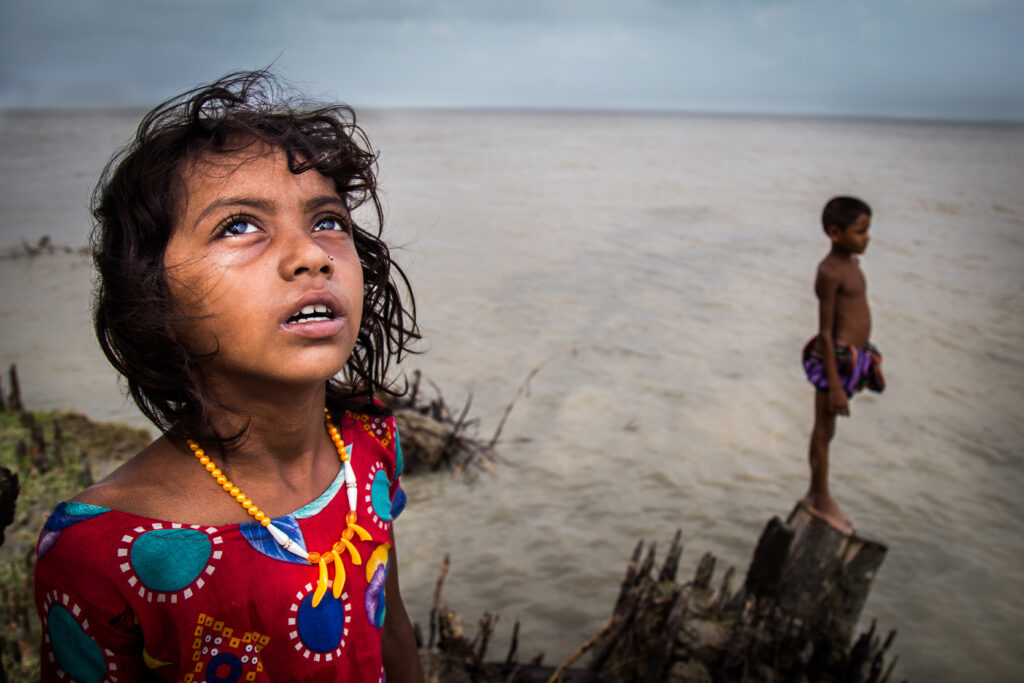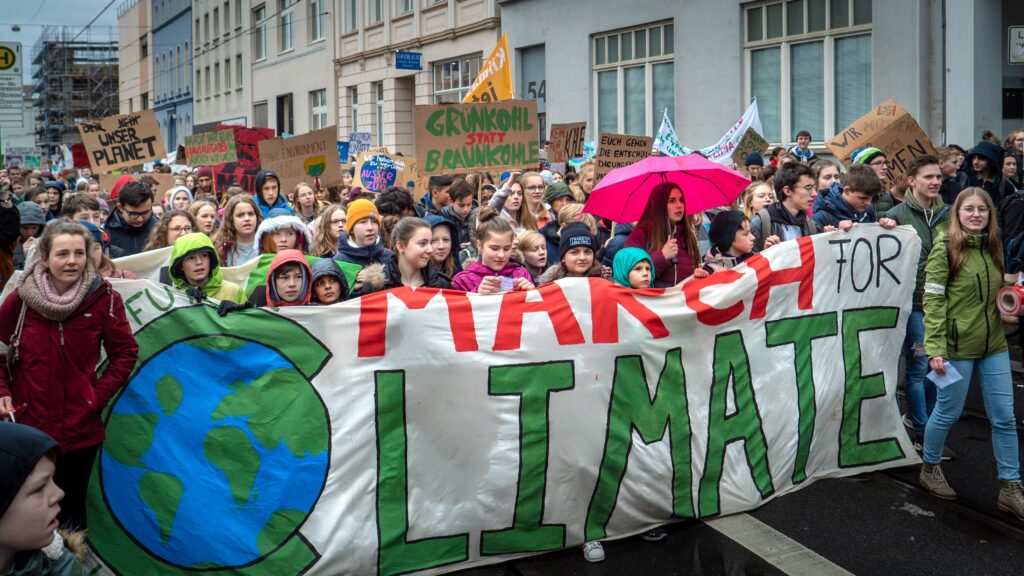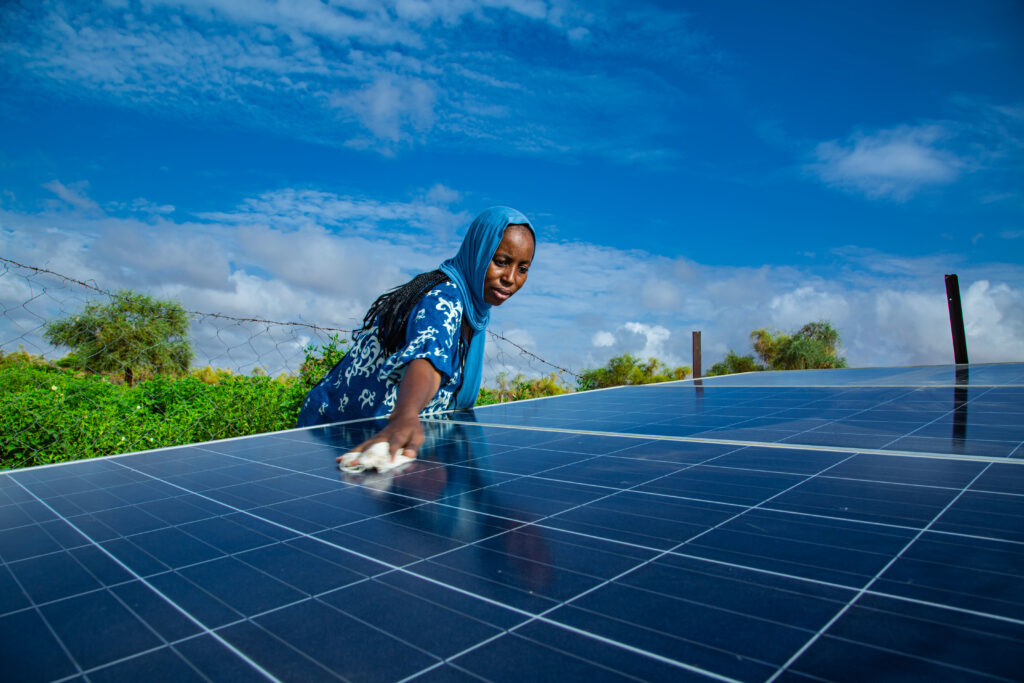
Due to massive climatic change effect many inland areas are corrosion under river in Bangladesh. A boy on a flooded riverbank, close up of a girl looking up with fear in her eyes. Due to river corrosion, water erosion, hundreds and thousands of people lose their homes and agricultural lands every year in Bangladesh. Nature has always been cruel to them- crueler than our imagination. Like all of us, they also have dreams, but unlike ours, their dreams always turn into nightmares.
What’s new in climate action? December 2021 Bulletin
Let’s be frank.
The story of how we came to be in a climate crisis is a story worthy of Shakespeare. It’s a tumultuous saga of deceit, betrayal, with villains and heroes, and a whole cast of people somewhere in between those points.
The climate and nature crises are intentional. Fossil fuel companies knew about the impact of their emissions on the planet from at least the 1960s – and their response was to spend decades and millions on covering it up, shifting the blame, and outright lying to the public.

In fact, big profit-driven corporations across sectors take centre stage as the protagonists of environmental degradation, human rights violations and skyrocketing emissions.
Rather than cleaning up their business practices, those same corporations have pushed policymakers time and time again to turn a blind eye. As the EU’s recent agriculture reform shows, corporate lobbying transforms policies meant to build a fairer greener world into policies that maintain the status quo, or even fuel the climate crisis.
https://www.desmog.com/map/213
But despite attracting the most attention and profit, the story of climate change is not about corporations. Ultimately, it’s a story about people. Millions of people trying to build a life for themselves and their children while climate disasters seize lives and livelihoods.
It’s a story about women in India resorting to selling their bodies to survive, and families in Libya forced out of their homes into unstable rubber rafts, and fishermen in Nigeria taking on big business for spilling oil in their water supply.
And when we say ‘people’ we of course also mean me, and you, and all of us so far shielded by the privilege of living in wealthier and more climate-stable countries. In a hyper-globalised society, all of us are connected by the world’s biggest butterfly effect. We must hold corporations and governments accountable and demand better climate action because the fate of those in the worst-impacted countries is inextricably linked to our actions here.

Because yes, it’s corporations and governments who ultimately wield the most influence in cutting carbon emissions and defending climate justice in law. But those corporations, those ever-crafty storytellers, also spun us a tale that we are powerless as individuals.
We know that this is not true. Farmers in Nigeria took on Shell – and won. Teenagers have mobilised thousands of people in the streets. People made the system. People can unmake it.
There are no audience members in this story. Each one of us is a protagonist and what happens next is also a reflection of our determination to hold corporations and governments responsible, and our ability – or inability – to extend solutions, support and solidarity to those who need it most.
As 2022 nears, it is up to us to write the next chapter of this story. A chapter that sees citizens take on corporate greed and dawdling governments, and refuse to settle for less than true climate justice.

CREDIT: Raphael Pouget Climate Visuals Countdown
In the Fulani village of Hore Mondji, located in southern Mauritania on the banks of the Senegal River, a women’s cooperative uses solar energy to operate the borehole that supplies water to the market garden. A project piloted by UNICEF in partnership with local authorities. In a country heavily impacted by drought and welding periods, solar energy represents an inexhaustible source of energy for the production of fruits, vegetables and aromatic plants (such as okra, carrots, mint, peppers, eggplants or tomatoes) for local consumption as well as for sale in the markets of neighboring towns. The women of the cooperative thus have a regular income as well as a rich variety of fruits and vegetables that promote dietary diversification and the well-being of their children.
Climate News Round-up
- How oil companies and PR firms are teaming up to delay climate action
- Half of global coal companies continue to develop new assets
- Russia blocks U.N. move to treat climate as security threat
- EU’s reformed agricultural policy fails its climate goals
- The world’s newest nation is both drying up and drowning
- Climate migration will worsen the brutality and confusion on the Mediterranean
- Collapse of doomsday glacier in Antarctica could begin within a decade
- EU proposes law to ban products linked to deforestation
- Apple announces Self Service Repair
- Renewable electricity growth is accelerating faster than ever worldwide
- Everyone in Wales to be given a free tree to plant
- Mental health benefits of visiting UK woodlands estimated at £185 million
- Shell pulls out of development plans for UK oil field Cambo
Join Mailing List
